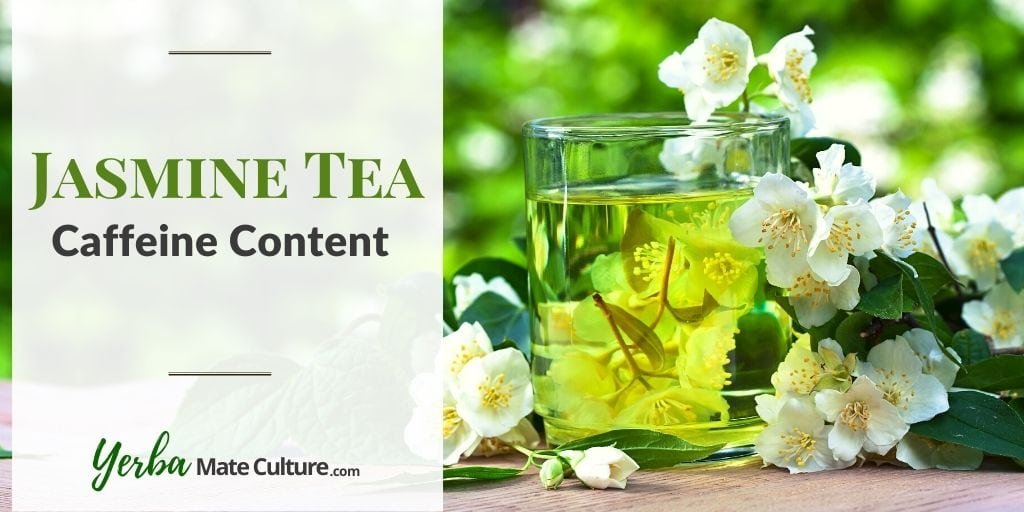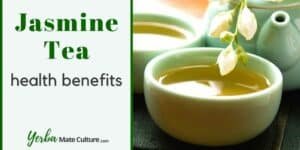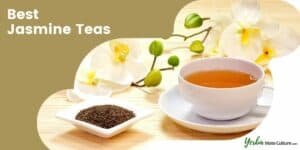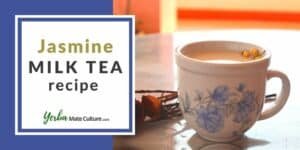Jasmine flowers are beautiful and famous for their sweet fragrance. Commonly used in perfumes, the Chinese have also used jasmine flowers to flavor green tea for centuries.
While jasmine tea is known for its delicate floral flavor, you might be wondering if it has any caffeine?
The answer depends on what kind of jasmine tea we are talking about. It’s time to immerse ourselves in the facts about different types of jasmine teas and their caffeine content.
Jasmine Tea Caffeine Content
Jasmine plant, often called “the Queen of Flowers,” is a member of the olive family and grows mostly in warm climates. It has over 200 species, but the most common ones used for tea are Jasmine (Jasminum officinale) and Sampaguita (Jasminum sambac).
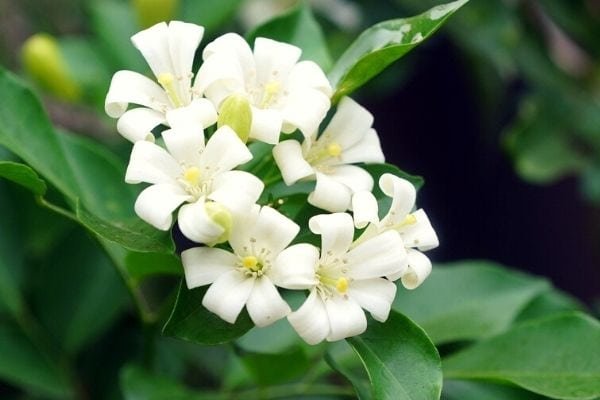
Jasmine tea comes in many forms and any tea that is infused or mixed with jasmine flowers or blossoms can be called jasmine tea.
Next, let’s take a closer look at the caffeine content of different types of jasmine teas.
Does Pure Jasmine Flower Tea Have Caffeine?
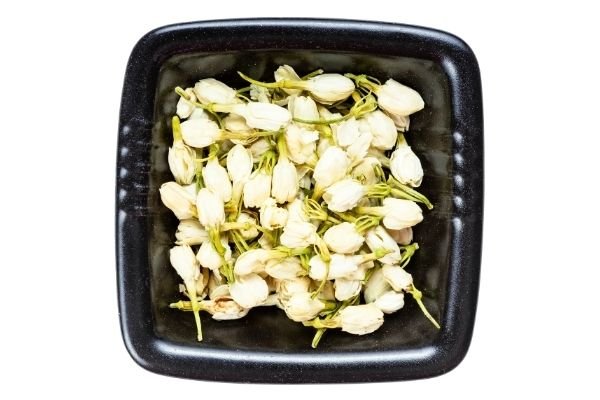
Pure jasmine tea is an herbal tea made with flower petals or full blossoms of the jasmine plant.
Jasmine flowers are naturally caffeine-free, which means that pure jasmine tea doesn’t contain any caffeine.
However, it has many health benefits as the plant contains natural compounds with antimicrobial and antioxidant properties.
Want to make some at home?
Read on, and later in this article I will share instructions for brewing some healthy caffeine-free jasmine tea.
If you are looking to buy any type of jasmine tea, I recommend that you check out my guide with the best jasmine teas to find the kind of product that suits your taste and preferences.
Does Jasmine Green Tea Have Caffeine?
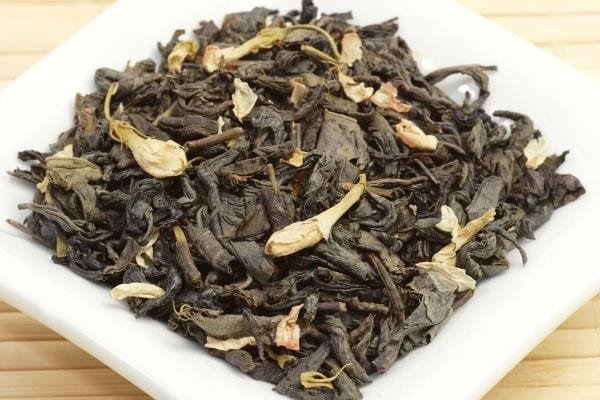
Made by mixing dried jasmine flowers with green tea or placing the flowers alongside the tea leaves to absorb the aromas, jasmine green tea is the most popular type of jasmine tea.
Typically the amount of caffeine per one cup of jasmine green tea ranges between 15 and 60 milligrams per cup.
The exact amount of caffeine depends on the type of green tea you use and how you brew it. Using more tea leaves per cup of water and steeping it longer results in higher caffeine content.
Jasmine green tea should not be brewed with boiling hot water. Instead, you should steep in in water that is about 160-180°F (or 71-82°C) for 2 to 3 minutes.
Does Jasmine Pearl Tea Have Caffeine?
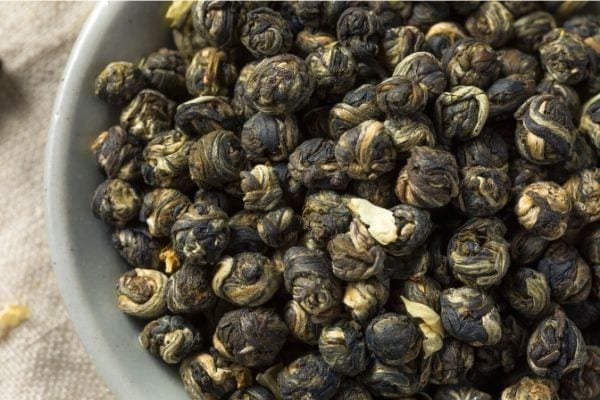
Jasmine pearl tea is actually green tea rolled into balls. These “pearls” open up beautifully when brewed. Similar to jasmine green tea, the pearls can contain jasmine flowers or they can be infused with the aroma and flavor of jasmine.
As jasmine pearl tea is in fact green tea, its caffeine content is also the same as in green tea.
I recommend using a glass infuser teapot for brewing jasmine pearls. This allows you to observe the pearls as they open while steeping.
Does Jasmine White Tea Have Caffeine?
White is known for its delicate and fresh flavor. Jasmine white tea is similar to jasmine green tea, except is made with white tea.
The caffeine content of jasmine white tea is comparable to jasmine green tea.
You can brew jasmine white the same way as jasmine green tea.
How About Black and Oolong Jasmine Tea?
Although jasmine black and oolong teas are not very common, they are still available in some specialty tea shops.
The amount of caffeine in jasmine black tea ranges from 25 to 75 milligrams per cup. Jasmine oolong tea usually has slightly less caffeine.
Jasmine black tea can be brewed in almost boiling hot water while oolong tea is best steeping in a temperature of about 195 degrees Fahrenheit.
How to Make Caffeine Free Jasmine Tea
Sometimes making a cup of completely caffeine-free tea makes sense. It won’t ruin your sleep so you can drink it before bedtime.
Here is how to brew it:
- Bring some water to boil.
- Add some dried jasmine flowers to your teapot. You can use about one teaspoon per one cup of water.
- Pour the hot water into the teapot. Cover and let it steep for about 10 minutes.
- Strain to teacups and enjoy!
Note that pure jasmine tea has a very mild flavor. Add some other herbs and maybe some honey if you want to make the tea more flavorful.
Mint and ginger are some of my favorites. You can also use chamomile to make a relaxing nightcap.
Here is my Jasmine Milk Tea Recipe that you can also try!
Final Thoughts on Jasmine Tea and Caffeine
So now you know that most jasmine teas are caffeinated because they contain either green or white tea.
Jasmine black tea has the most caffeine, so you should probably not drink it before going to bed.
But you can also make a healthy cup of caffeine-free jasmine tea by using only dried jasmine flowers. And why not mix them with chamomile and some other herbal ingredients for a relaxing cup of evening tea.
Choose according to your preference and enjoy!

